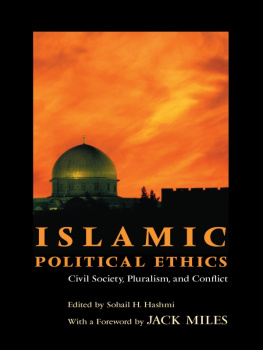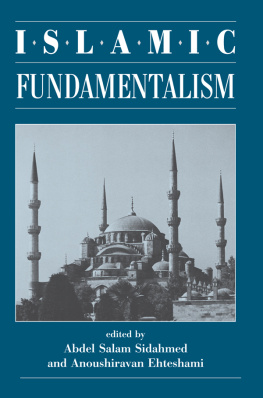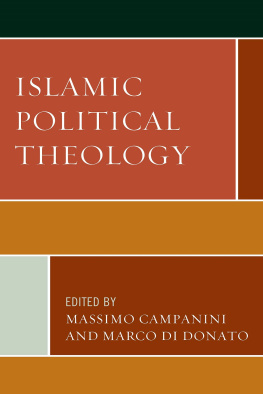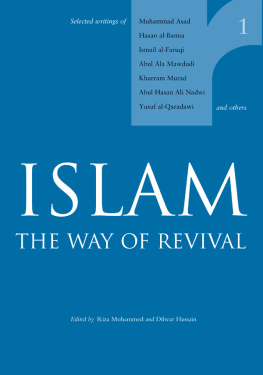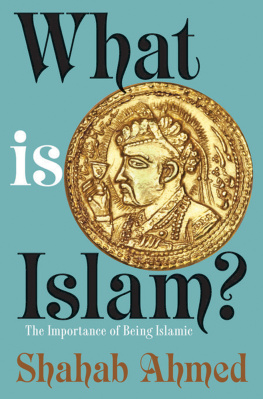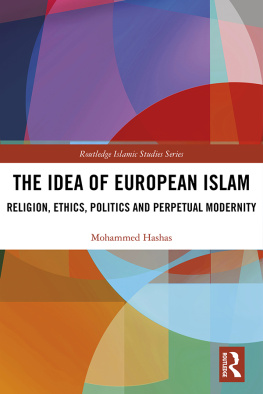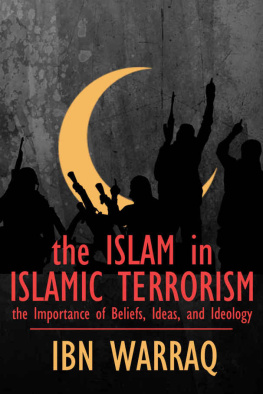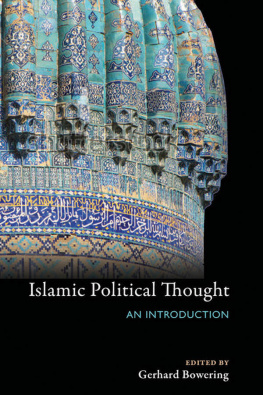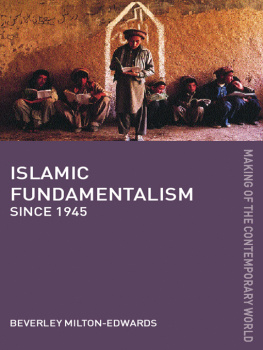ISLAMIC POLITICAL ETHICS
ETHIKON SERIES IN COMPARATIVE ETHICS

The Ethikon Series publishes studies on ethical issues of current importance. By bringing scholars representing a diversity of moral viewpoints into structured dialogue, the series aims to broaden the scope of ethical discourse and to identify commonalities and differences between alternative views.
TITLES IN THE SERIES
Brian Barry and Robert E. Goodin, eds.
Free Movement: Ethical Issues in the Transnational Migration of People and Money
Chris Brown, ed.
Political Restructuring in Europe: Ethical Perspectives
Terry Nardin, ed.
The Ethics of War and Peace: Religious and Secular Perspectives
David R. Mapel and Terry Nardin, eds.
International Society: Diverse Ethical Perspectives
David Miller and Sohail H. Hashmi, eds.
Boundaries and Justice: Diverse Ethical Perspectives
Simone Chambers and Will Kymlicka, eds.
Alternative Conceptions of Civil Society
Nancy L. Rosenblum and Robert Post, eds.
Civil Society and Government
Sohail H. Hashmi, ed.
Foreword by Jack Miles
Islamic Political Ethics: Civil Society, Pluralism, and Conflict
Richard Madsen and Tracy B. Strong, eds.
The Many and the One:
Religious and Secular Perspectives on Ethical Pluralism in the Modern World
Margaret Moore and Allen Buchanan, eds.
States, Nations, and Borders: The Ethics of Making Boundaries
ISLAMIC POLITICAL ETHICS
CIVIL SOCIETY, PLURALISM ,
AND CONFLICT
EDITED BY
Sohail H. Hashmi
WITH A FOREWORD BY
Jack Miles
PRINCETON UNIVERSITY PRESSPRINCETON AND OXFORD
Copyright 2002 by Princeton University Press
Published by Princeton University Press, 41 William Street, Princeton, New Jersey 08540
In the United Kingdom: Princeton University Press, 3 Market Place,
Woodstock, Oxfordshire OX20 1SY
All Rights Reserved
Library of Congress Cataloging-in-Publication Data
Islamic political ethics: civil society, pluralism, and conflict / edited by
Sohail H. Hashmi.
p. cm.(The Ethikon series in comparative ethics)
Includes bibliographical references and index.
eISBN: 978-1-40082-537-0
1. Islam and state. 2. Political ethics. 3. Islamic ethics. 4. Civil society.
5. Pluralism (Social sciences) 6. WarReligious aspectsIslam. I. Hashmi, Sohail H., 1962 II. Series.
JC49 .I766 2002
172dc21 2002025293
British Library Cataloging-in-Publication Data is available
This book has been composed in Palatino
Printed on acid-free paper.
www.pupress.princeton.edu
Printed in the United States of America
10 9 8 7 6 5 4 3 2 1
Contents
Jack Miles
Sohail H. Hashmi
John Kelsay
Farhad Kazemi
Hasan Hana
M. Raquibuz Zaman
Sulayman Nyang
Dale F. Eickelman
Muhammad Khalid Masud
Sohail H. Hashmi
Bassam Tibi
Sohail H. Hashmi
Foreword
Of Theology and Diplomacy
JACK MILES
ESTERN foreign ministers and secretaries of state may have to learn a little theology if the looming clash between embattled elements both in the West and in the Muslim umma is to yield to disengagement and peaceful coexistence, to say nothing of fruitful collaboration. If al-Qa'ida is a Muslim movement with military designs both on the umma itself and on the West, then it must be understood, in the first place, for what it isnamely, a deviant form of a major world religion and not simply a latter-day species of organized crime. To say this is not to dignify al-Qa'ida. It is rather to suggest that containing the threat to world peace that it poses may entail constructing and promoting a viable and authentically Muslim alternative to its fatally appealing political vision.
It is, then, no idle academic exercise that the thinkers whose work is collected here have in hand. The long-term practical importance of their work can scarcely be overstated. The West has been eager to see more democratic political systems emerge within the Muslim world butfor reasons rooted deep in Western historyslow to recognize that the task of creating such alternatives must involve Islam itself. Although President George W. Bush did well after the terrorist attacks of September 11, 2001, to declare that Osama bin Laden did not represent true Islam, the American State Department seems little interested in asking who does represent true Islam. This questiondirectly involving, as it does, the study of religionis one that officially secular Western military and diplomatic institutions are designed never to ask, one that they rarely even notice they are not asking. This silence marks the knowledge gap that must be closed if peace is to be achieved, and the authors of this volume may well be a part of closing it.
At the end of World War I, as historian David Fromkin cogently demonstrates in A Peace to End All Peace, Britain and France vastly overestimated the importance of Arab nationalism and correspondingly underestimated the importance of Islam as an organizing principle in the polity they sought to construct on the ruins of the Turkish empire. In effect, the British and the French were psychologically incapable of dealing with the Middle East other than through leaders manufactured to resemble their passionately nationalist but only residually religious selves. They were at a loss when confronted with a culture whose real leaders were passionately religious and only nominally nationalist.
After 1956, when the United States became the dominant power in the Middle East, it made the same mistakevastly overestimating, for example, Iranian nationalism as represented by the shah and correspondingly underestimating Muslim religion as represented by Ayatollah Khomeini. It was as if the United States had to find or invent someone like the shah to deal with because, well, how could a self-respecting secretary of state possibly do business with an ayatollah? What would they discuss? Theology?
Let me suggest that in the crisis we now face the answer to that question is Yes, theology. In the search for an alternative conception of civil society that can bridge the gulf between the umma and the West, theology is quite properly an inescapable topic. In Alternative Conceptions of Civil Society: A Reflective Islamic Approachto single out just one of the contributions to this volumeHasan Hanafi states as his premise the belief that similarities can be maintained and differences can be bridged through creative reinterpretationor ijtihadof the basic ethical sources of Islam. Although Western political leaders cannot, clearly, take the lead in this creative reinterpretation, they would be ill-advised to ignore it. On the contrary, they should follow it with keenest interest, for its success or failure will have everything to do with their own.
Reducing this ethical and, by extension, political ijtihad to mere jihad will not do. Just as militant Communism could not be militarily defeated in the last clash of civilizations, so militant Islam cannot be militarily defeated in this new one. Western containment and Communist peaceful coexistence emerged as twin strategies when both sides recognized that, in fact, neither side could win a definitive military victory. At the present juncture, unfortunately, no comparable recognition has yet taken place. The West still expects globalization backed by Western military ascendancy to encompass all, while at least a significant militant segment of the umma has not surrendered its older vision of a
Next page
